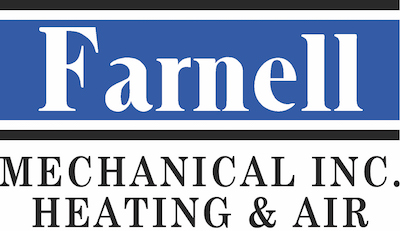
With proper maintenance, your air conditioner can last 15 years or longer. But even the best maintained air conditioner will need to be replaced down the road.
When you’re getting started planning for air conditioning installation in Auburn and Opelika, we realize that the expense tops your list of questions. The good news is that buying a new air conditioner could be more reasonable than you think it is, thanks to rebates, our special offers and financing for qualified customers. You’ll also enjoy better energy efficiency, which will typically pay off over time through lower utility bills.
Here’s what to prepare for when you’re installing a new air conditioner.
When You Should Replace Your Air Conditioner
Knowing when to repair or replace your air conditioner might be tricky. Here’s what our pros advise.
Replace
- Your air conditioner is past 10 years old. While some may work longer, many air conditioners work for around 15 years with regular maintenance. We advise getting ready for air conditioning replacement near the 10-year mark. Even if you install a new one when it’s only a decade old, the U.S. Department of Energy says this tweak could save you 20-40% on cooling expenses.
- You’ve avoided annual maintenance for a long time. Much like a car, your cooling system has to have regular air conditioning maintenance. Overlooking this crucial service can cause lower efficiency, more persistent repairs and even a shorter life span.
- Your air conditioner requires frequent or expensive repairs. Needing air conditioning repair is typically the result of not doing service But as your air conditioner ages it’s more likely to experience a major breakdown. When repairs are higher than half the cost of a new air conditioner, we recommend getting a new one.
- Your residence isn’t comfortable. If your house feels too sticky or you’re dealing with hot and cold spots in certain areas, your air conditioner could be struggling to keep up. This is a clue you should replace it.
- Your utility bills are high. Your air conditioner gets less efficient as it gets older. As a consequence, it may need to work more frequently or longer to keep your home at your desired temp. Newer air conditioners have the most up-to-date energy-efficient technology to keep your residence cool and cooling bills reasonable.
- Your air conditioner has R-22 refrigerant. If your air conditioner was replaced before 2010, there’s a decent chance it uses Freon. Also known as R-22, this refrigerant is no longer being made due to its detrimental effects on the environment. You can continue to use your air conditioner, but if it were to have a refrigerant leak, fixing that would be extraordinarily expensive. This is since R-22 is only available in limited, recycled portions.
Repair
- Your air conditioner is less than 10 years old. If your air conditioner is newer, it’s wisest to repair it.
- Repairs aren’t needed all the time or inexpensive. The wisest way to prevent emergency repairs is to have regular service completed. But when repairs are only needed intermittently or are economical, repair your air conditioner.
- Your air conditioner is covered by a warranty. Most air conditioners are accompanied by a 5- to 10-year limited warranty that usually covers the compressor. Your exact warranty length is determined by your manufacturer, but it gives valuable protection in the event of a huge failure. If your air conditioner is under warranty, we advise fixing it.
General Estimate of Air Conditioner Cost
Most homeowners spend around $4,631 on a new air conditioner, according to national averages compiled by HomeGuide. Air conditioner cost averages often range from $3,350 to $5,912, but your total cost {might|could|may] be different.
There are a couple of aspects that affect your total cost, such as:
- The air conditioner model you install, because more energy-efficient ones are more expensive.
- The size you need.
- If you need to install new ductwork, which can be needed if your ductwork is dated or damaged.
We give free estimates at Farnell Mechanical, Inc. so you can be sure you’re getting a good deal. And with our complete range of air conditioners, there’s an energy-efficient model that accommodates just about any budget.
The Size of the AC System
Air conditioner size is essential. A system that’s too small won’t be able to keep your home cool. And one that’s too large could turn on and off too often, or short cycle. This act can inflate your utility expenses and wear your air conditioner out prematurely. This may also cause temperature instabilities and make your residence feel less cool.
At Farnell Mechanical, Inc., our technicians have many years of experience in accurately sizing and installing the right air conditioner for your residence. The ideal size depends on how large your residence is, in addition to a few other things. Some of the most typical sizes include:
- 2 ton, which cools up to 1,000 square feet
- 3 ton, which cools up to 1,600 square feet
- 4 ton, which cools up to 1,900 square feet
- 5 ton, which cools more than 2,000 square feet
Other considerations that can affect air conditioner size are:
- The weather in Auburn and Opelika.
- Ductwork quality and age.
- How many windows you have and the style, as large or picture windows can be lower efficiency.
- If your home receives more sun or shade.
- Insulation quality and thickness.
- How many people are in your household.
SEER Ratings
Your air conditioner’s efficiency is linked to its SEER, or Seasonal Energy Efficiency Rating. This number measures how efficiently it consumes electricity to create cooling. The greater the number, the more efficient the air conditioner is.
When you’re getting a new air conditioner, it’s essential to be aware:
- Dated air conditioners are classified around 8-9 SEER.
- New air conditioners start at 13 SEER. Ones installed in the southwest and southeast must be no less than 14 SEER due to U.S. Department of Energy regulations. As of 2017, these SEER rating requirements have saved homeowners trillions of dollars.
- ENERGY STAR®-certified air conditioners begin at 14.5 SEER.
- Higher SEER-rated air conditioners come with more features to help you save more. These features may entail variable-speed cooling. Instead of going at full blast all the time, these air conditioners can adjust blower speeds adjusted for your cooling requirements. This leads to quieter and more energy-efficient air conditioning. While an air conditioner with a greater SEER rating is usually more expensive, it might be eligible for extra rebates. And the energy savings over its lifetime might help it pay for itself.
Request a Free Quote for Your Air Conditioning Installation with Farnell Mechanical, Inc. Right Away
When you’re researching air conditioning replacement, the company who installs it is just as essential as the model you go with. Farnell Mechanical, Inc. is one of the top names for air conditioning installation in Auburn and Opelika. From helping you select the ideal solution for your home to reviewing financing options to professional installation, working with us is a breeze. Reach us at 334-524-2458 to start now!
